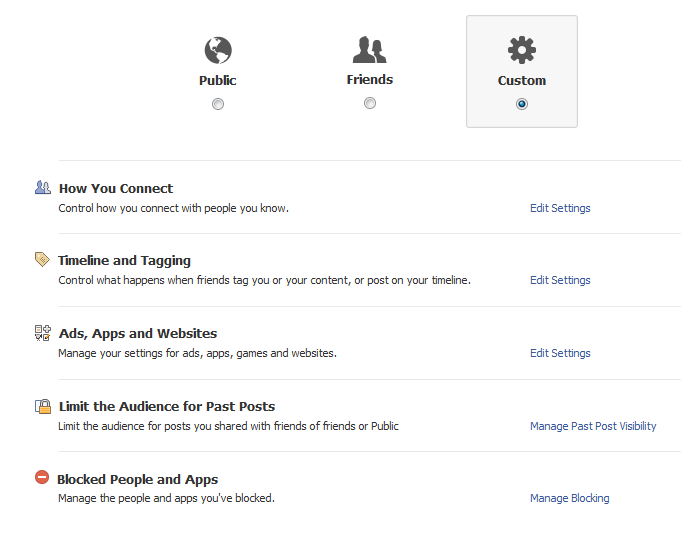By Ali Siemens (Contributor) – Email
Print Edition: October 3, 2012
People all over the world have become a part of online communities such as Facebook and Twitter. 2012 QuantCast statistics say that there are over 800 million users worldwide, with more joining every single day. Online social media has become a part of our societal fabric; terms such as “Facebook me” and “add me as a friend” have leaked into our everyday vernacular.
One of the amazing aspects of social media is that it has brought people closer together in terms of being able to communicate with friends and family across the world. We no longer have to rely on long distance phone plans because inventions such as Skype have provided us with the ability to talk and see our loved ones for free.
Unfortunately, social media has been both a blessing and a curse when it comes to privacy. Before social media, when we would share information with friends and family, it was assumed that it would stay between the person we confided in. Today, we log onto our Facebook accounts and are immediately faced with the ubiquitous question, “What’s on your mind?”
With 800 million people connected to Facebook, there is a good chance a few of those users are people we don’t want knowing everything about our lives. Bosses, parents, professors and others are all logging on to the same social networking site that we are.
Facebook is constantly changing its privacy settings, and users around the world seem to be very conscious about it. Awareness of privacy concerns is not the issue. It’s the apathy surrounding the issues. Reading through the Privacy Act can be a tumultuous task; it is long and full of jargon. One of the internet’s biggest lies has been made into the infamous meme, “Do you agree with the terms and conditions?”
One part of the privacy act explains how Facebook (and Twitter and Linkden etc.,) have the right to use your information for third party applicants. Information such as our name, age, interests and our location can be given out without being informed. This includes more technical information, such as the browser you are using, your IP address and the times you have logged on and off.
We are living in a world where technology is advancing quickly, and it seems like everyone is connected to some online social media platform. The internet is a useful tool, and in many ways, we are all dependent on it.
Researchers Deirdre O’Brien and Ann Torres conducted a study in 2010 that was aimed at understanding how Facebook users perceive and apply their knowledge of privacy concerns on their personal accounts. After running a series of questionnaires to 285 applicants, they concluded, “[w]hile Facebook users believe they are more cautious in what they say and do on the social networking site some activities in terms of information disclosure and number of Facebook “friends” appear to still be driven by the desire for social acceptance on the social networking site and not by privacy concerns.”
Looking at my own newsfeed, I’d have to agree with the assertions made by O’Brien and Torres. Users update their statuses, upload pictures and communicate with friends and family for more reasons than just keeping in contact. It has become an avenue for posting the funniest meme, most controversial update or cutest cat video.
In the way Facebook has developed in recent months, as soon as one of your friends “likes” a video you have uploaded, their “like” will appear on their friends’ newsfeeds, even if you are not mutual friends. Suddenly, the privacy settings we previously selected are no longer protecting us. Our information is making its way to other places without us knowing.
Facebook is a brilliant invention. Completely functioning with user-generated content, it acts solely as an interface for us to communicate and share as little or as much as we want. Until recently, I had not read the privacy act in its entirety. I trusted the site as a whole, thinking it would not betray my trust and I could go on posting the funny, inappropriate and sarcastic internet content I enjoy. Then I started looking at my future, and realized all this information is going to be saved, and never erasable. Every key stroke, Facebook like and humorous video I upload is being saved for someone else to gather at a later date. Have I read all the terms and conditions for everything I look at or download on the internet? No. Will I start? Yes.


